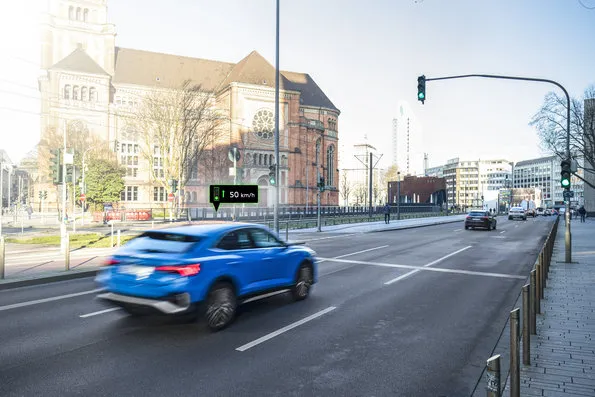Ford is currently trialling technology which aims to reduce time spent waiting at a red light. Green Light Optimal Speed Advisory uses information on traffic light timings from a roadside unit to display to the driver the best speed to travel at to get a green light.
The tests are part of the UK Autodrive self-driving and connected car trial, a 16-member, publicly funded US$24 million (£20 million) project which is developing and trialling vehicle-to-vehicle and vehicle to infrastructure technologies tha
October 24, 2016
Read time: 2 mins
The tests are part of the UK Autodrive self-driving and connected car trial, a 16-member, publicly funded US$24 million (£20 million) project which is developing and trialling vehicle-to-vehicle and vehicle to infrastructure technologies that could make driving less stressful and time-consuming, and improve fuel efficiency.
The Mondeo Hybrid cars provided by Ford are also trialling Emergency Electronic Brake Lights, which warn when a vehicle up ahead suddenly brakes hard, even if the incident occurs out of sight, up to a distance of 500 metres.
Technologies that will be trialled next year also warn drivers when another vehicle is blocking the junction ahead; when an ambulance, police car or fire truck is approaching; and prioritises vehicles arriving at intersections without traffic signs or traffic lights.
Trials are taking place on both public roads and closed circuits in Milton Keynes and Coventry during the next two years.









